With father deported, Flores family wrestles with financial pressures, emotional toll
Bridging the Border: A Family Divided was supported by the Pulitzer Center.
CHULA VISTA, Calif. — Soft sunlight peers through the still-closed blinds of the sparse two-bedroom apartment. Enedis Flores’ children are still sleeping, some on mats on the floor.
Enedis, 54, darts back and forth between the kitchen and her bedroom — her wet hair wrapped in a towel atop her head. She was up early to prepare food for a work potluck, but now she’s running late.
She works part time at the Employee Rights Center in San Diego, attends community college and navigates multiple welfare programs, all while raising six children on her own during the week.
“I wake up at 6 a.m.,” said Enedis, whose second language is English. “I take them to the school. … I go to my job. When I have class, I go to my class and then I go to my job. I come back at 6 p.m. I make dinner and go to sleep. No time for other things.”
Enlarge

Amanda Cowan/The Columbian
Three years ago, Enedis’ life was much simpler. She and her husband, Ramon, lived a typical middle-class life in Hazel Dell. Then Ramon, the family breadwinner, was torn from his family after Motel 6 gave his information to U.S. Immigration and Customs Enforcement agents. After living undocumented in the U.S. for 20 years, Ramon was deported. Now, the border separates him from his American wife and children, who see him only on their weekend visits to Tijuana, Mexico.
After Ramon was deported in August 2017, Enedis and the couple’s six children, all U.S. citizens, became homeless within the year. Fourteen months later, they finally have a place of their own, although their future remains uncertain.
The Floreses ran a Mexican goods business in Washington, and Enedis tried for a year to keep it going after ICE arrested Ramon. The business foundered, and she closed it in February 2018.
Enlarge

Amanda Cowan/The Columbian
Friends and a GoFundMe account, she said, helped her pay the rent, but it was often late. At one point, their utilities were shut off for lack of payment. She and the children were asked to leave their Hazel Dell townhouse in June 2018. They stayed with a family friend in Battle Ground.
That same month, Ramon bought a round-trip plane ticket to Canada. A friend offered him a job in Prince George, B.C. But when he arrived, immigration officials wouldn’t let him leave the airport, he said, because of his U.S. deportation history. Instead, he flew back to Mexico the next day.
The family had hoped Canada could be a viable living option. After the failed attempt, they decided to get as close together as possible, with Ramon moving to Tijuana and Enedis and the children finding a place just on the other side of the border.
Enlarge

Amanda Cowan/The Columbian
Enedis sold most of their belongings at a garage sale, packed what was left between two vehicles and the family drove to Anaheim, Calif. There, they stayed two weeks with family friends. After that, they stayed three months in Chula Vista hotels with the help of housing vouchers.
They hit rock bottom in December 2018 when the vouchers ended. Enedis and the children slept in their two cars for two nights in the parking lot of the Chula Vista mall. With no other options, they moved into Ramon’s cramped apartment in Mexico.
“When you don’t have a home for your kids, that is horrible,” Enedis said, holding back tears. “Now, I have a home, but it doesn’t feel like home.”

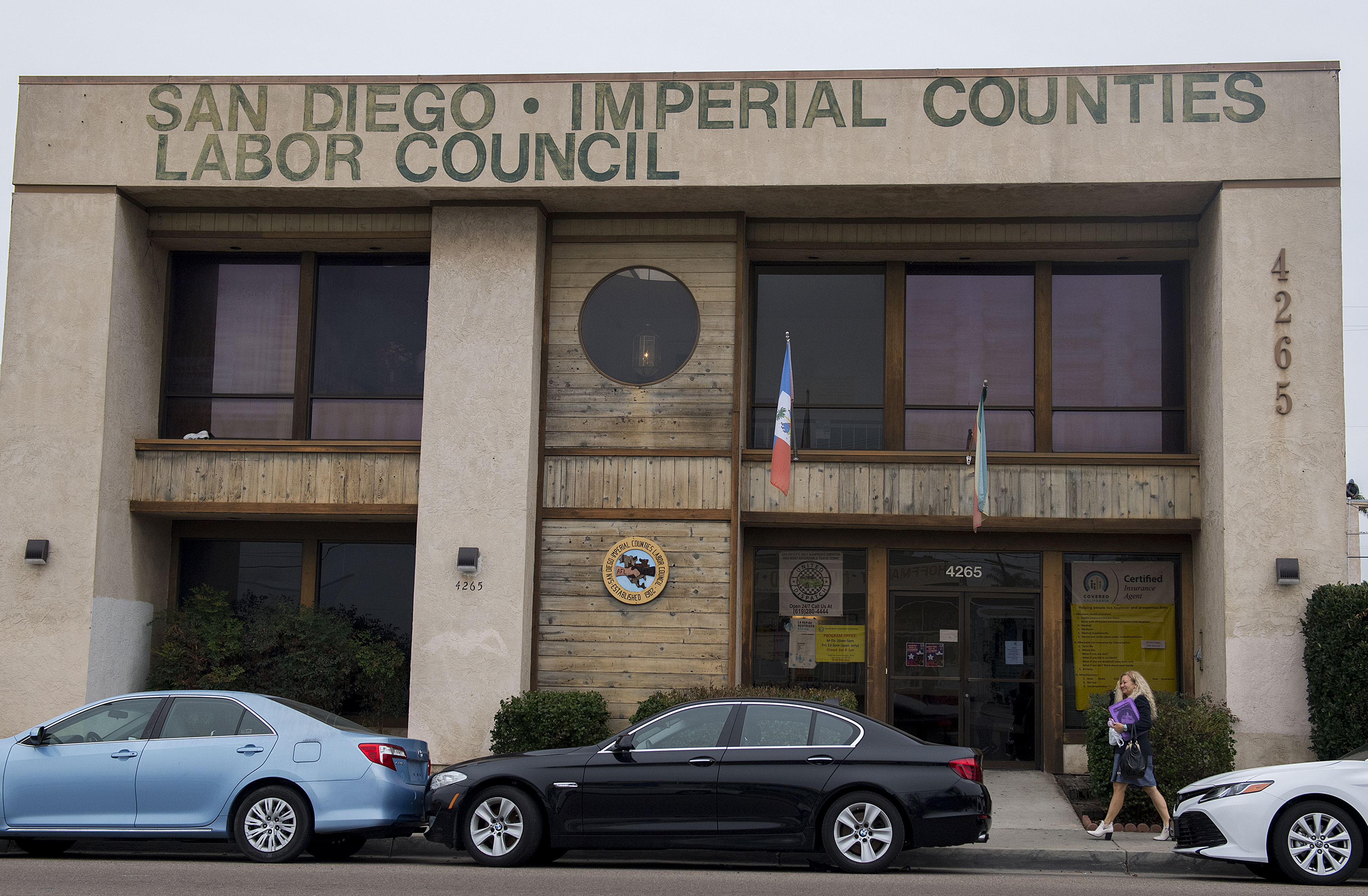
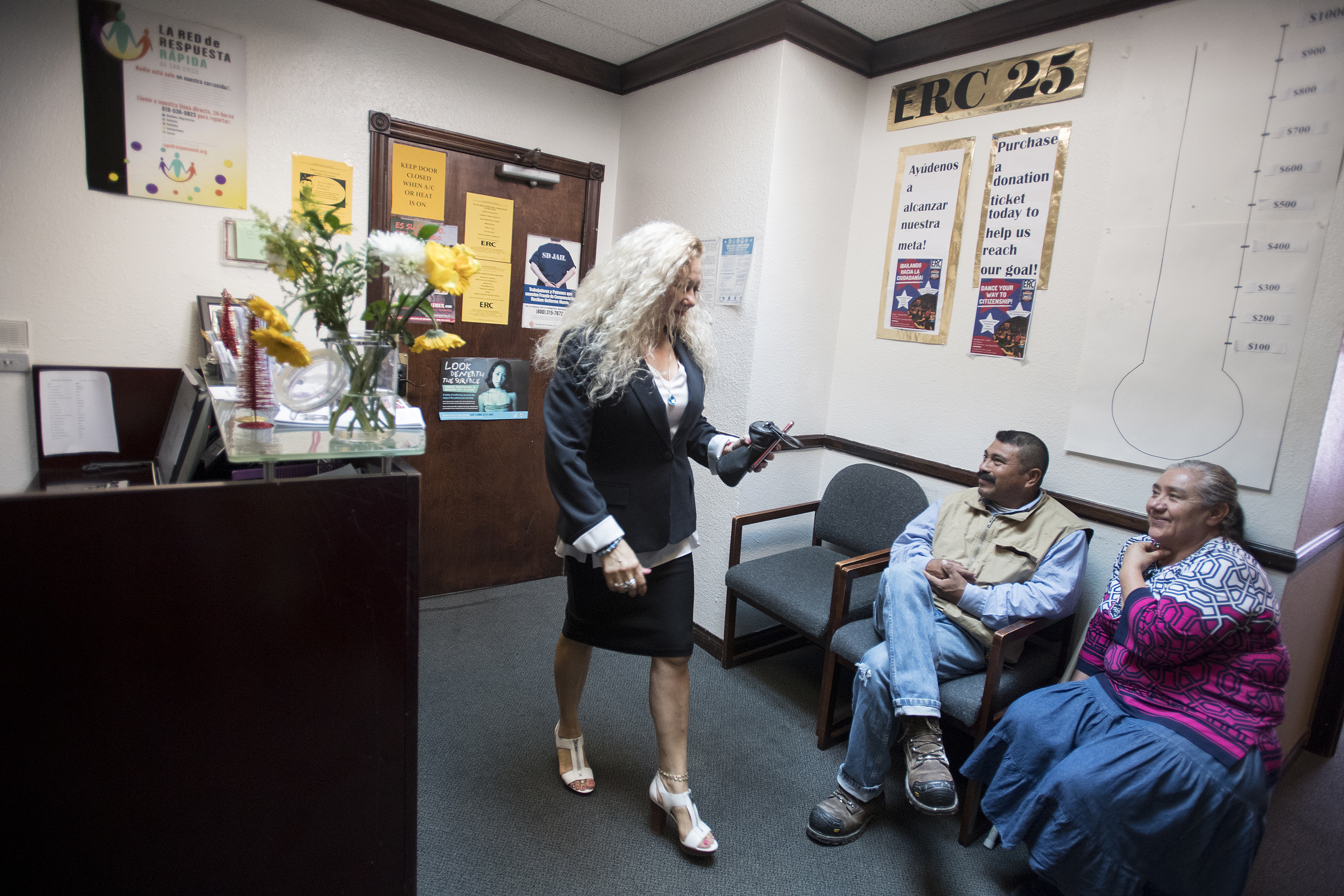

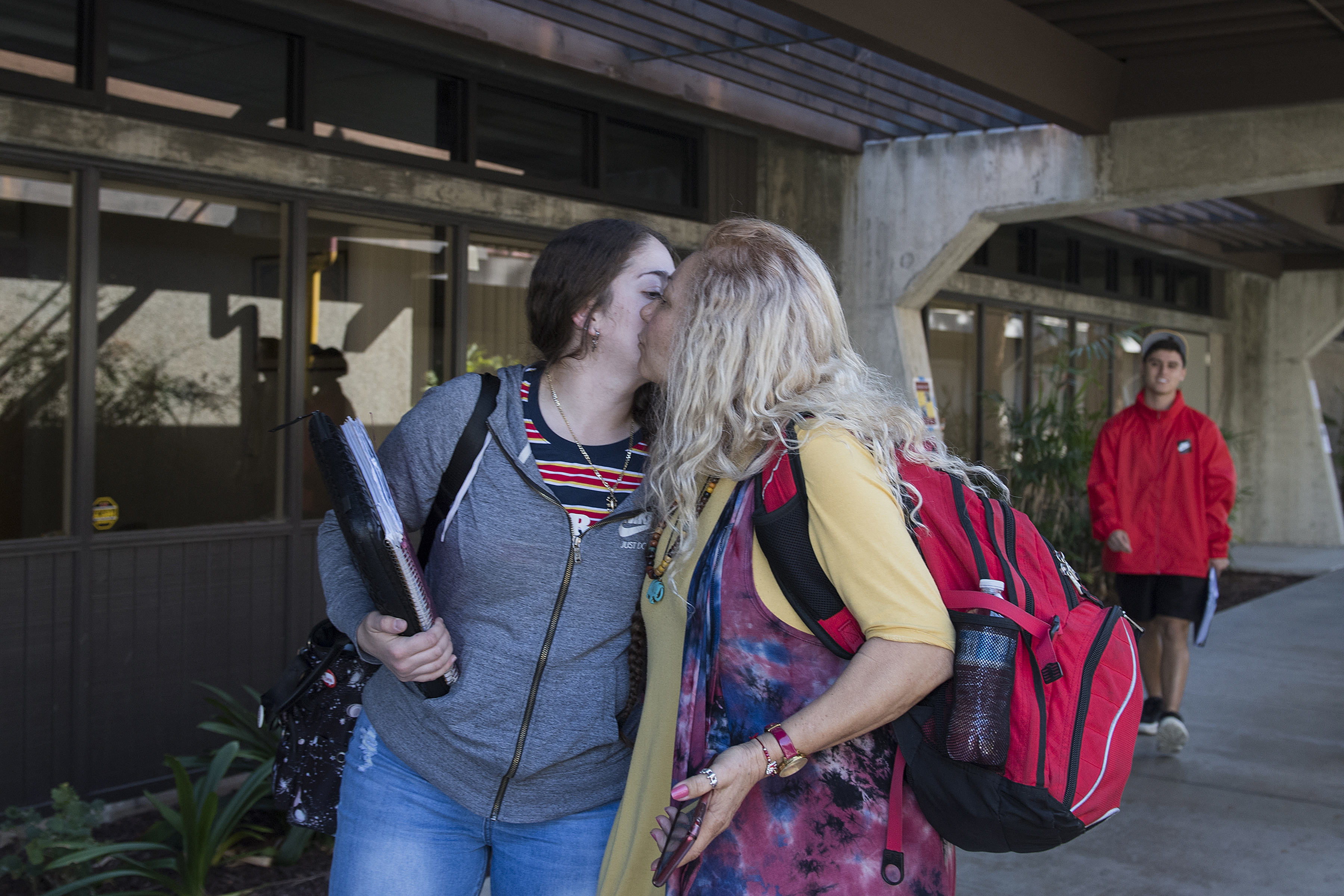

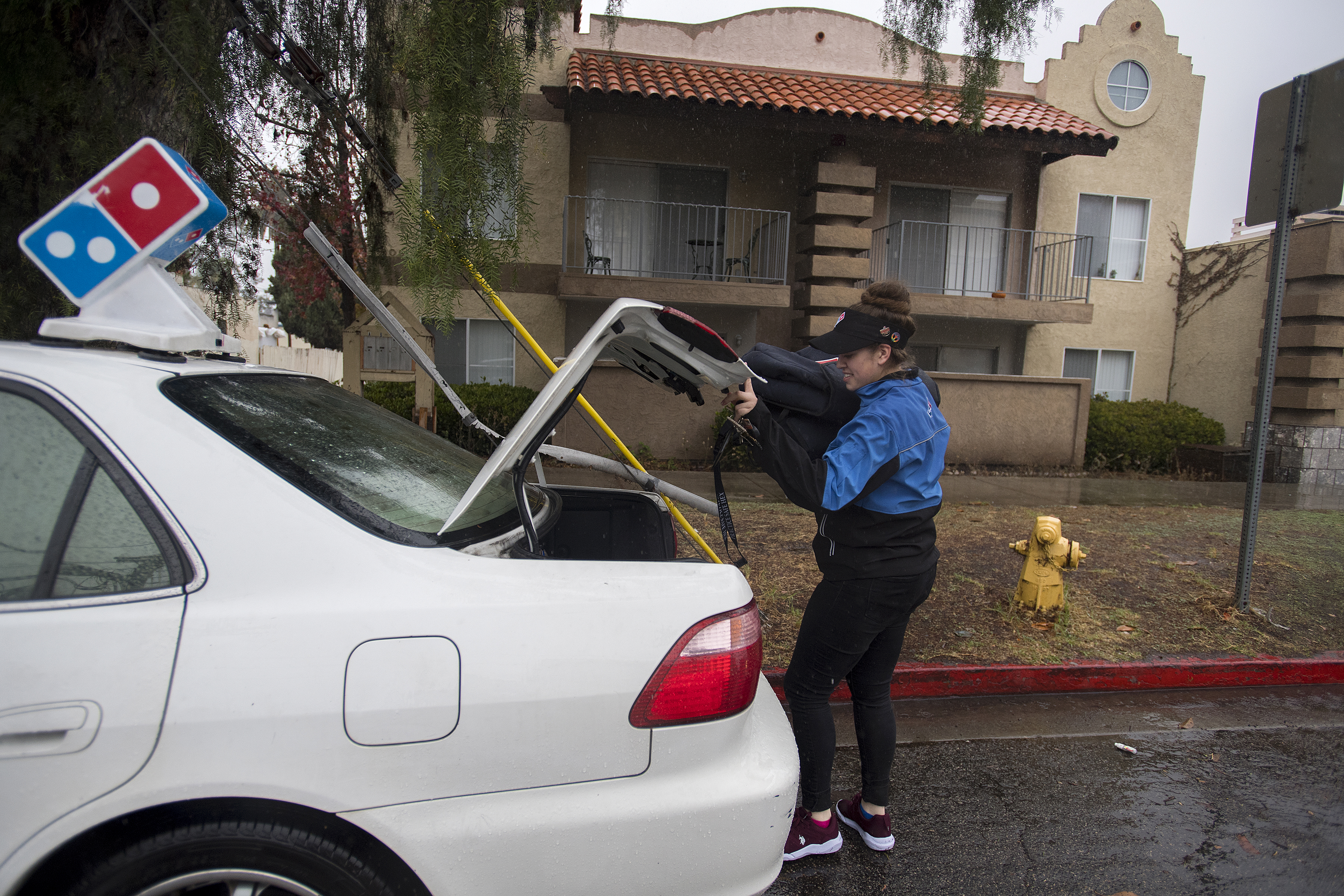

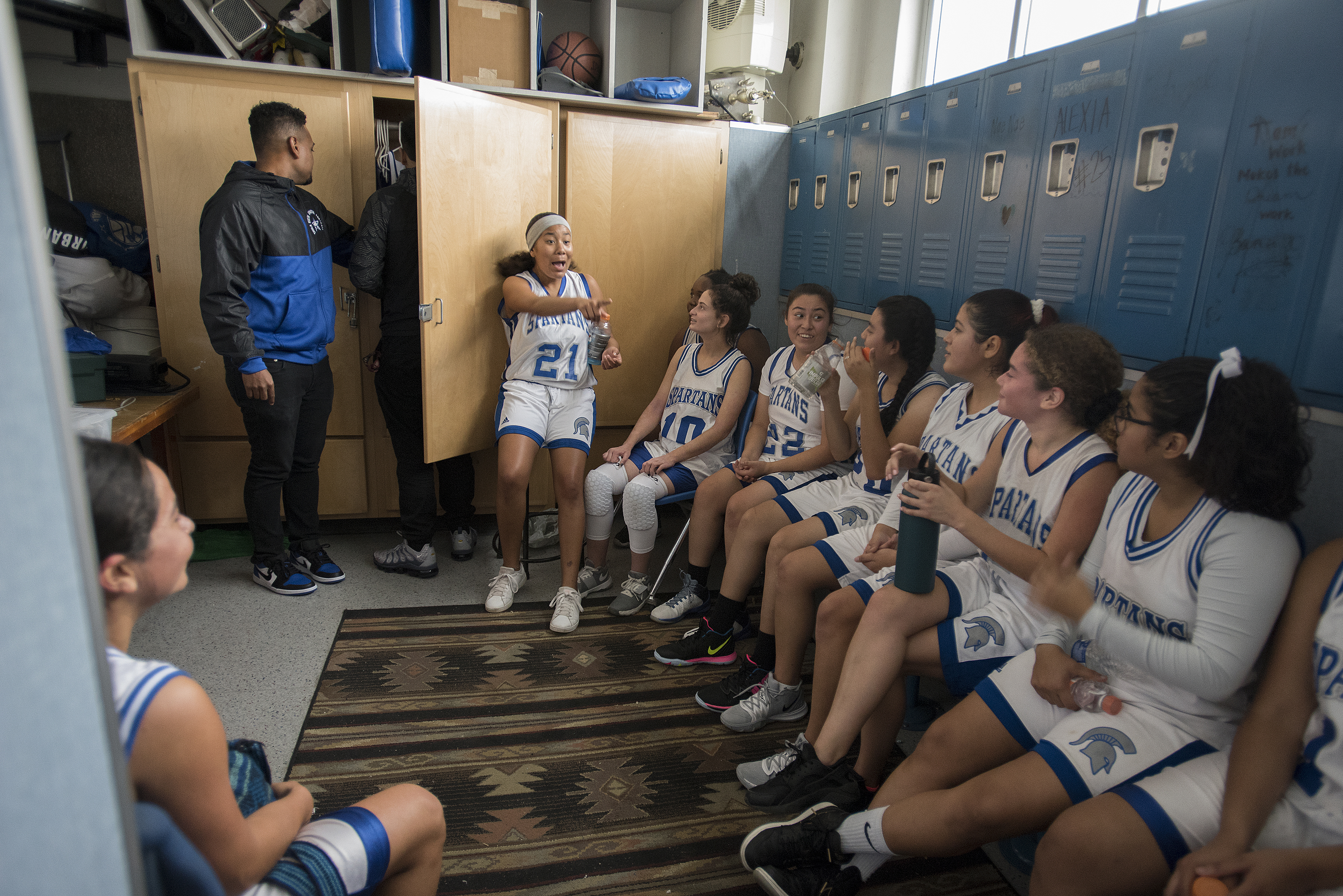
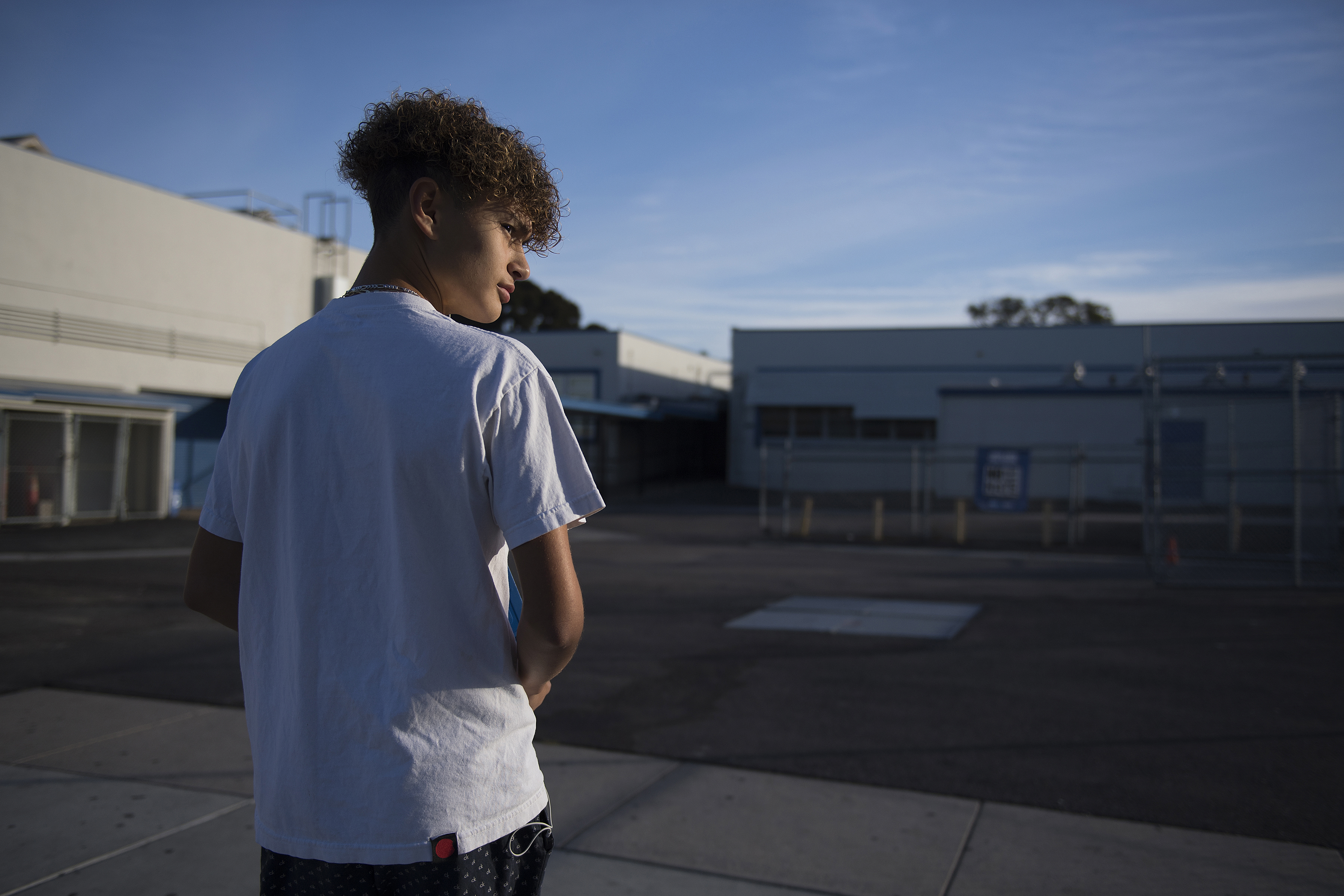





An uncertain future
Enedis’ burden is not lost on Ramon.
When she and the children visit Ramon, he encourages her to catch up on sleep.
“She’s taking care of all the kids over there, and that’s a lot of responsibility. And I understand that,” he said.
The family receives rental assistance for the Chula Vista apartment, which covers the majority of the $1,845-a-month rent. Enedis also gets food stamps and cash assistance.
But it’s not enough to make ends meet without help. Daughter Leslie, 23, and son Lennes, 18, work part time to cover other necessities such as car insurance and phone service. Leslie delivers pizzas for Domino’s, and Lennes makes minimum wage at a pet store at the mall.
Enlarge

Amanda Cowan/The Columbian
“I feel bad because … it’s not their responsibility to do it. It’s my responsibility. They need to go to school and continue doing the school,” said Ramon, whose second language is English. “When I lived over there, they just go to school and that’s it. I take care of them, that’s a lot of kids, and I take care of everything.”
Enedis’ position at the Employee Rights Center is through a welfare-to-work program that pays while training her to improve job skills. Enedis assists green-card holders with their citizenship paperwork. She attends class part time at Southwestern College in Chula Vista.
Her job program concludes at the end of December, however.
“My heart is really out for Enedis because she’s a very eager woman and brave,” said her boss, Adriana Huerta.
Enedis said she’s supposed to start a new job program in January, but she doesn’t know how long it will take to be placed. At the same time, her rental assistance ends. She’s worried about how they’ll pay the rent they already can’t afford. She keeps belongings, such as family photos, packed in moving boxes for that reason.
Ramon has resolved to find some way to support his family.
“I want to try to do something like driving a car to make some extra money or find another job. Because I have to, I need to help them to pay the rent over there,” he said. “She’s not going to be on the street again. … I don’t want that to happen.”
Enlarge

Amanda Cowan/The Columbian
Adjusting to a new life
Stress visibly weighs on Enedis as she prepares to give a presentation in her reading class the Tuesday after Thanksgiving. Born in Cuba, she says she’s self-conscious about her English, and like many, Enedis fears public speaking.
She stands uncomfortably at the front of the classroom and tries to calm herself after a mild panic attack over a technical difficulty with her slideshow. She stayed up until 10:30 the night before, studying and putting it together.
Enlarge
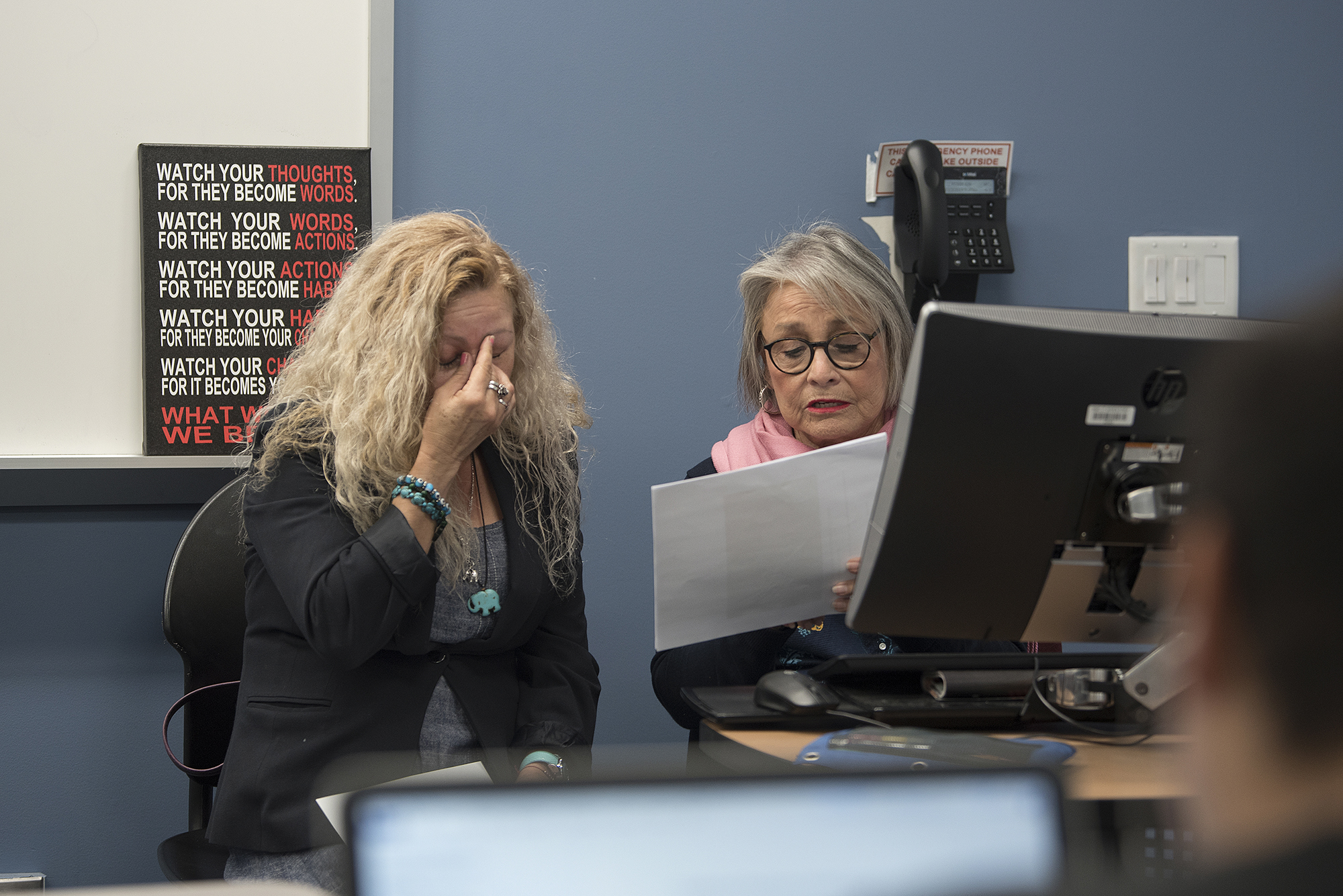
Amanda Cowan/The Columbian
“Sit down, calm down. It’s just us,” her professor gently encourages.
When it’s her turn to present, Enedis wipes her hands on her dress and takes a deep breath. Her project, titled “The Basics of Naturalization,” is five slides.
Her classmates and professor give her an average score of 90/100, an A.
“Oh, yay,” Enedis exclaims.
Some of her children are thriving despite the upheaval, while others are struggling.
Leslie attends the same community college as her mother. Discussions of race and bias often crop up in her classes, leading her to reflect on her family’s situation.
“What this country is doing is wrong,” she said. “The ones that are coming to America are trying to escape from pretty much a corrupted country that they live in. That’s the only reason why there’s so many coming over here because they want to start a new life, especially for their families,”
Kennedy, 16, is trying to make the most of things.
“I still don’t really like it here, because I just miss Vancouver a lot. That’s my home. But I’m getting used to it. I have a lot of friends here now,” she said.
Kennedy played field hockey earlier this year and is a captain of the high school girls’ novice basketball team. The day before Thanksgiving, she helped lead her basketball team to a 11-3 victory — sinking a free throw.
The youngest Flores, 10-year-old Rayma, has also shown resilience despite the circumstances. The school’s assistant principal says Rayma is “very bright” and exceeded state test standards in language arts and math last year. She’s won at least six awards this year for academics and behavior, several of which hang on Ramon’s refrigerator.
Enlarge

Amanda Cowan/The Columbian
Edward, 12, is having a harder time adjusting. He’s at the middle school now.
“I got pretty mad at my mom for making us go down here,” he said. He misses school in Vancouver and his friends. He’ll soon participate in an after-school sports and tutoring program.
For 15-year-old Raymond, school is about his “homies.” His father’s deportation hit him particularly hard. To cope, he leans on friends whose families are in similar situations.
Older brother Lennes said that after their father’s deportation, he started hanging out with the wrong crowd and lost interest in hobbies he once loved, such as playing sports.
“I wasn’t active as much. I was doing other things instead of what I should have been doing,” he admits.
Now, he hopes to turn things around. He attends class in the mornings to finish high school, and works a few days a week at the pet store.
“Now that I’m older, when I look back at it … I had it pretty good as a little kid,” he reflects. “I got everything I wanted. We weren’t living in poverty. We were at least middle class, so we were doing good. We had a nice little family in the suburbs. And then that hit, and it got all taken away and just overnight.”
Enlarge

Amanda Cowan/The Columbian
The road ahead
When Ramon decided in the mid-1990s that he wanted to live in the U.S., he had no idea how to go about obtaining legal residency, he said. And he didn’t think coming in the way he did was that bad.
“I’m young. I don’t think about consequence of doing it,” he said. “If I know the consequence of everything, I never do it the wrong way. But I learned this too late, I guess.”
Ramon hopes that within the next year his family can get a clearer picture of his situation.
Enedis is looking into what possibilities exist for Ramon to re-enter the U.S. ahead of his 20-year ban. It’s their understanding that Ramon must remain outside the country for at least 10 years before he can apply for a waiver to forgive his prior removals.
If he can’t re-enter, he’ll consider starting a business in Tijuana, he said, or trying to move to Canada so his family can return to Washington or join him there. He said Canada is much more like the U.S. than Mexico. But because he’s already been denied once, he acknowledges there’s a chance Canada won’t admit him.
“I will try to … follow my dreams and my plans. I hope we can make it. If not, let’s see what happen,” Ramon said.
Enlarge

Amanda Cowan/The Columbian
He knows his family doesn’t like coming to Tijuana.
“It’s not exactly as safe as it should be,” Leslie explains. “Having to come to TJ, it’s difficult because it’s not something that we’re used to. We’re used to our dad being with us the majority of the time, and having to come here almost every weekend, it’s such a hassle.”
Ramon is hopeful that a new presidential administration could change U.S. immigration policies and help his situation.
“I would like to go back the right way, you know, legal,” Ramon said. His voice turned into a whisper as he choked back tears. “When you just do work, hard work, take care of your family, and they make you feel like a criminal.” He paused to compose himself. “I don’t want to feel like that again. I prefer to stay here.”
Enlarge

Amanda Cowan/The Columbian
Christmas wishes
Tonight, on Christmas Eve, the family plans to come together again. For the past two years, Christmas has been bleak.
In 2017, Ramon was 2,500 miles away in Puerto Vallarta. Raymond flew down from Vancouver for the month to spend the holiday with him. Last year, Enedis and the children were homeless in Chula Vista and spent Christmas in Tijuana.
Despite being together, the family did not put up a Christmas tree or decorations. They had no money for gifts.
“We just had the apartment here. We didn’t have anything here. We didn’t have a stove. We didn’t have a kitchen,” Ramon said. “We didn’t have a bed. We sleep everybody on the floor.”
The Floreses were part of the local Adopt-a-Family program, which pairs a family in need with a sponsor, so they received a few presents through that, as well as gift cards from the children’s schools, Kennedy said.
The holiday was nothing compared to years past in Vancouver when Ramon and Enedis could afford “three, four, five presents” for everyone, Ramon said.
Enlarge

Amanda Cowan/The Columbian
“I want to get a tree this year,” Kennedy says, standing in her dad’s now fully functional kitchen.
With a bit more stability, Ramon says that maybe this Christmas will feel more normal.
“I hope we can have a small Christmas tree and put it somewhere, and try to feel like it’s something better — and a little present for everyone,” he said.
The family plans to eat chicken and pork tamales tonight, and come Christmas morning, the parents hope the children will each have a present waiting for them under the tree.
What are the adults’ Christmas wish? Ramon says, “To be all together, that’s the most important thing.”
Bridging the Border
A three-day series
Sunday: A family divided
Monday: Tijuana tests family ties
Immigration attorney: Few legal paths for immigrants
Today: Living parallel lives
Motel 6 lawsuit
To learn more about the Washington Motel 6 lawsuit and settlement, visit www.atg.wa.gov/motel-6-settlement-claim-information. The information is also available in Spanish. To file a claim, visit washingtonmotel6settlement.com.
Those who believe they may be a member in the Motel 6 class-action lawsuit and settlement, can submit a claim at www.motel6settlement.com.
The claims process in both settlements ends Dec. 31.
Claimants in the Washington settlement are eligible to also file a claim in the class-action settlement. However, class-action claimants waive their right to file their own lawsuit. Claimants may include in their submission how their family was affected by Motel 6’s practices, which will be considered in distributing funds.
How we reported this story
Columbian readers first met Ramon Flores’ family in September 2017 in a story headlined Deportation tears apart family of 9. At that time, Ramon was in New Mexico, only days away from being deported to Mexico City.
His wife and children were still living in Hazel Dell, trying to reassemble their lives without their husband, father and breadwinner.
Reporter Jessica Prokop told their story, and followed up as state Attorney General Bob Ferguson sued Motel 6 for disclosing the personal information of guests to federal immigration authorities, who then singled out Latino-sounding names. After Motel 6 settled two lawsuits for $22 million last summer, Prokop began wondering what had happened to the Floreses. Was Ramon still in Mexico? Was the family still in Clark County? Had they put their shattered lives back together somehow? She made a few calls and found out the family was in Southern California, and Ramon was just across the border in Tijuana, Mexico. There was a good story, but how could we afford to tell it?
Education reporter Katie Gillespie, who is the chapter president of the Western Washington Society of Professional Journalists, told Prokop about grant funding from the Pulitzer Center on Crisis Reporting. With help from Gillespie, Prokop and our photo editor, Amanda Cowan, submitted an application for funding to travel to San Diego County and Mexico to meet with the family, see their lives and tell their story. The Pulitzer Center quickly responded. The money was ours.
Prokop and Cowan decided to travel over the week of Thanksgiving, both for the irony and operational reasons: With most of the family having time off in the U.S., they would have a rare chance to be interviewed and photographed together during this most American of holidays.
We hope that our readers will appreciate their report of the family’s precious few days together, and the plight of the Floreses and countless others like them in the U.S. and Mexico.
— Craig Brown, editor